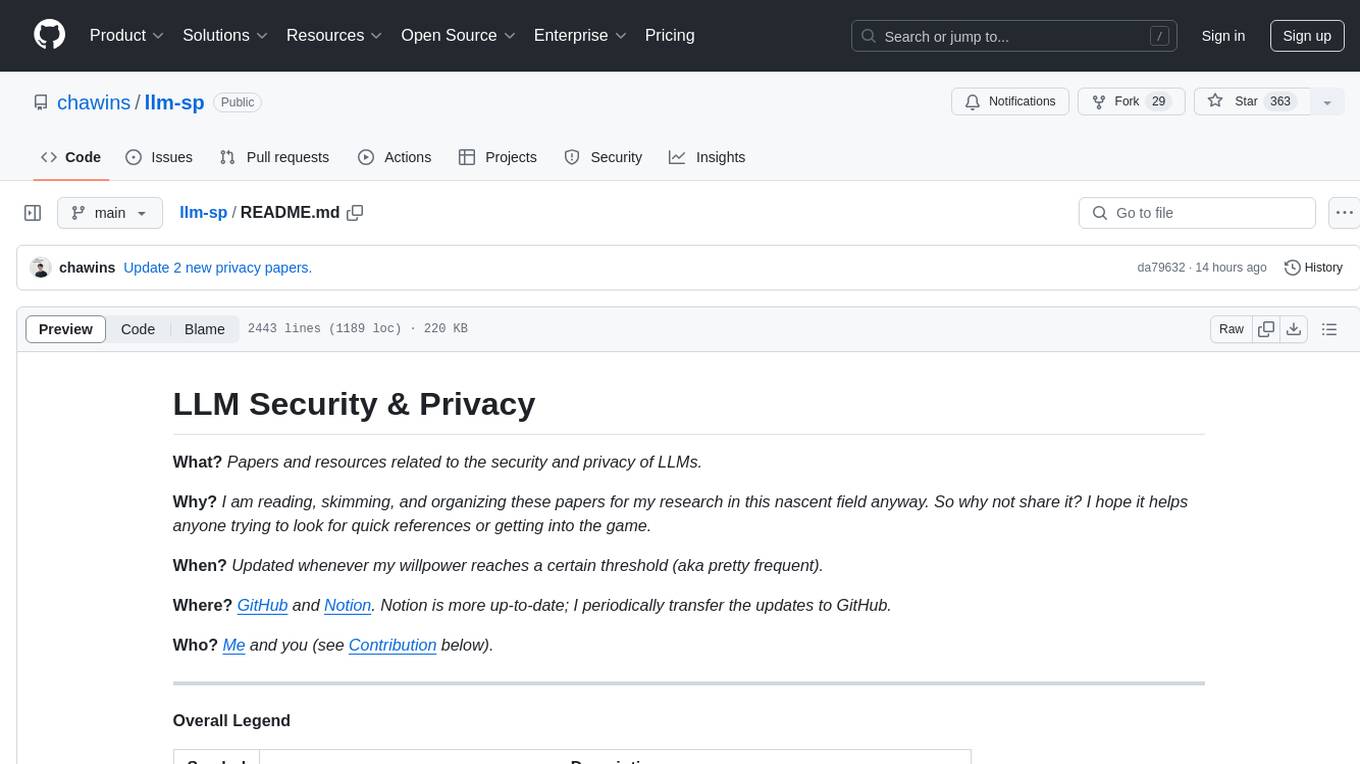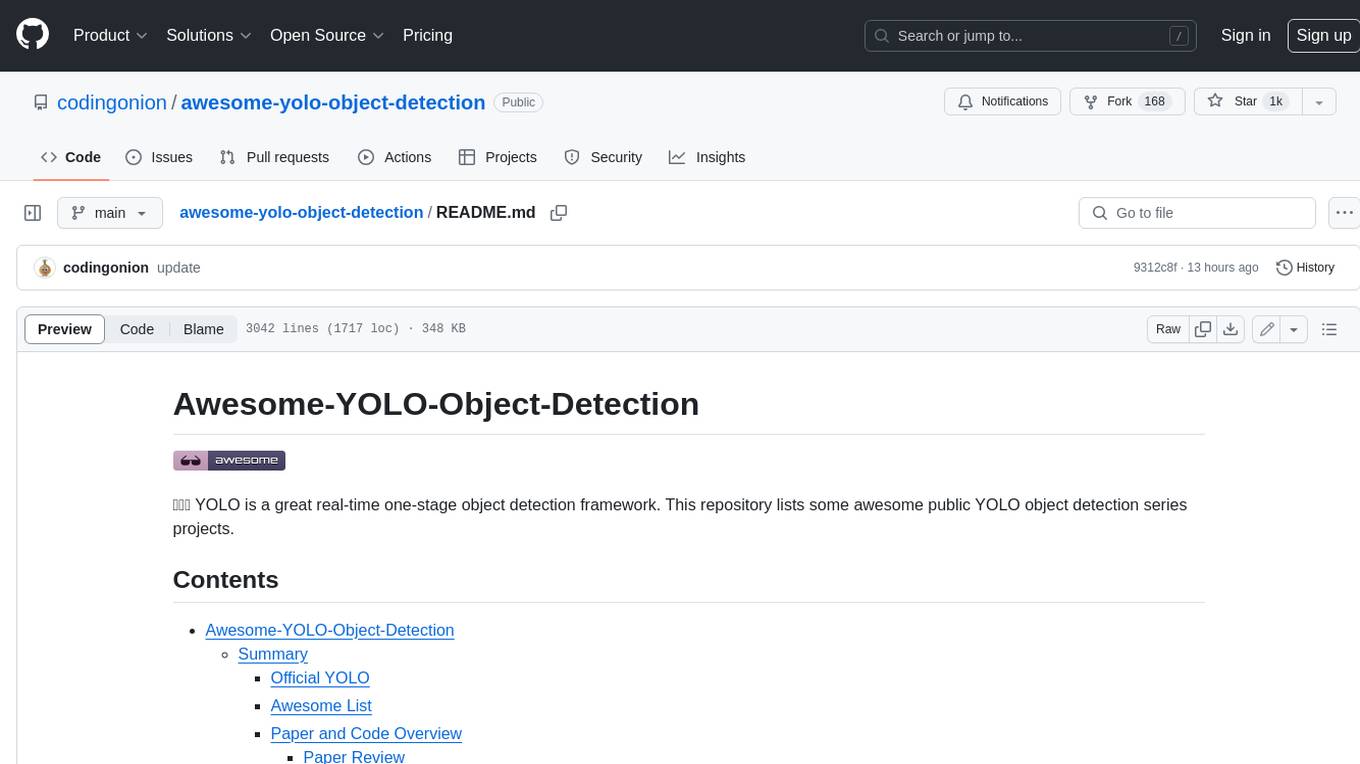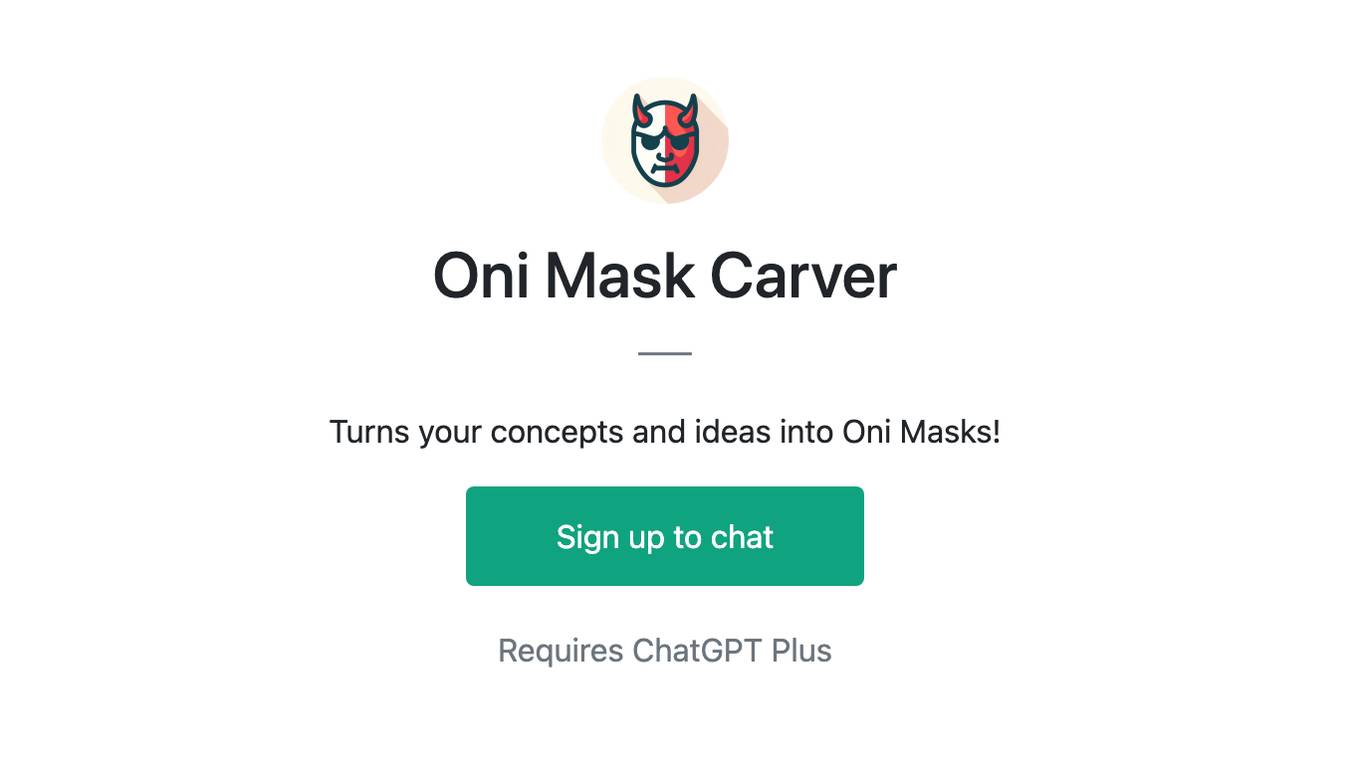Best AI tools for< Mask Information >
10 - AI tool Sites
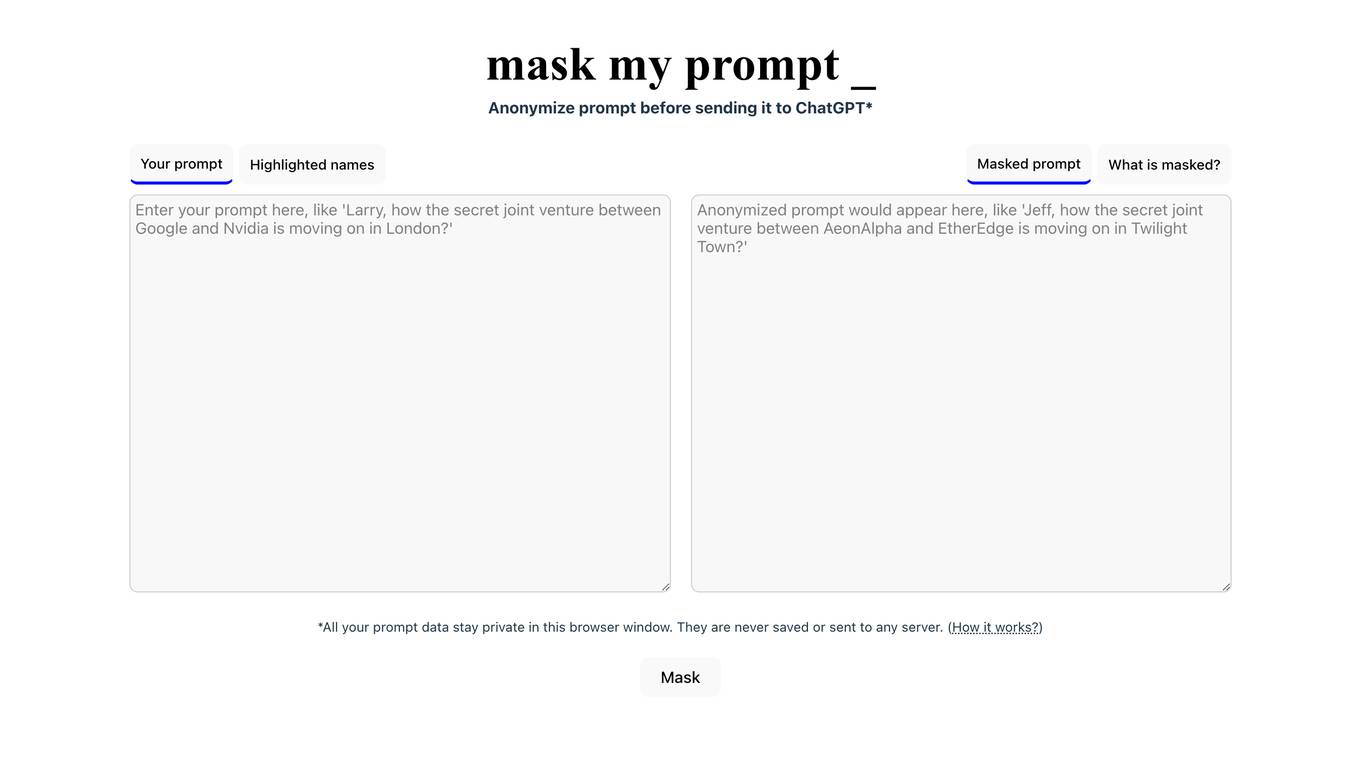
MaskMyPrompt
MaskMyPrompt is an AI tool designed to anonymize prompts before sending them to ChatGPT. It ensures that your prompt data remains private by masking names and sensitive information. The tool is programmed by Mike Ushakov and ChatGPT, utilizing the powerful Transformers.js. Users can reach out for support or feature requests via email or Twitter.
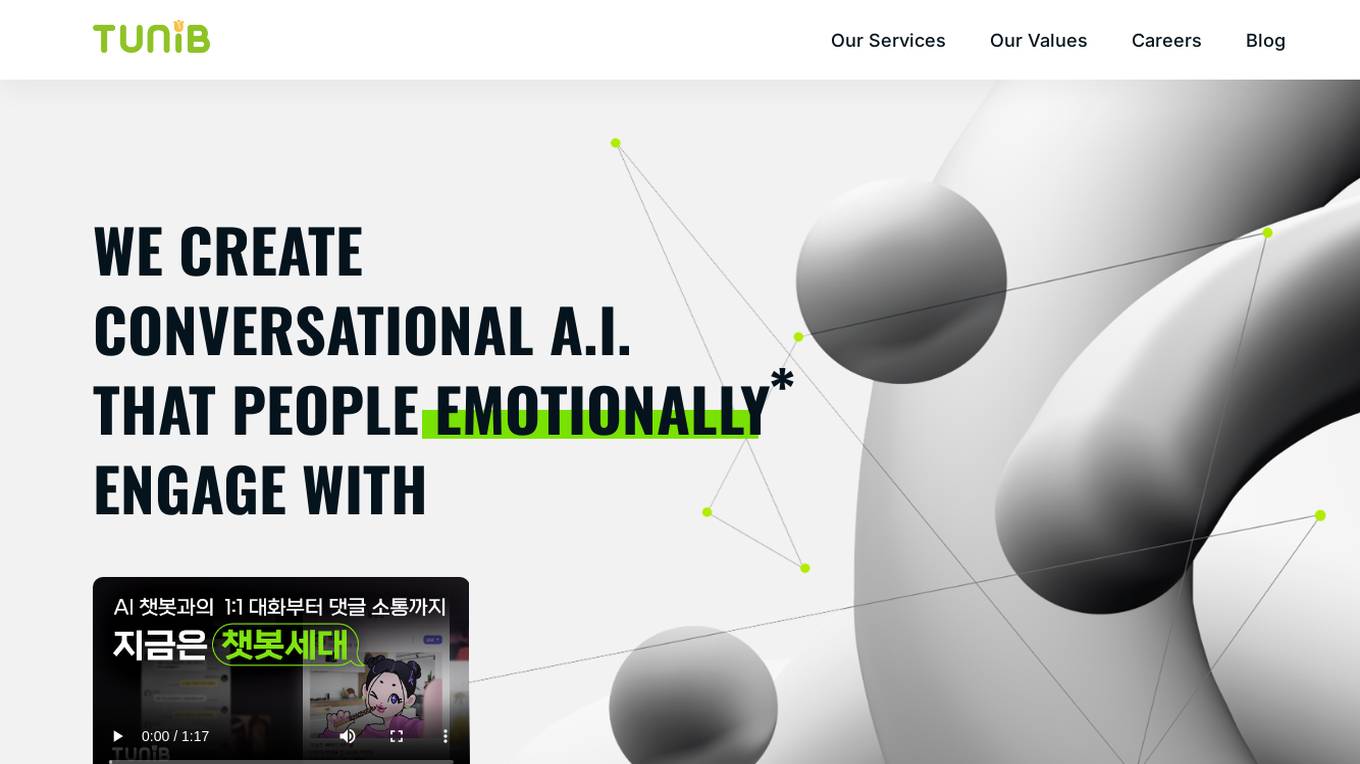
TUNiB
TUNiB is an AI application that specializes in creating conversational AI that people emotionally engage with. It offers services such as NLP APIs for detecting hate speech and breaches of private information, safety checks for toxicity detection, de-identification for masking personal information, and various analytics services like text, image, news, and video analytics. TUNiB aims to provide cutting-edge technologies while upholding high ethical standards.
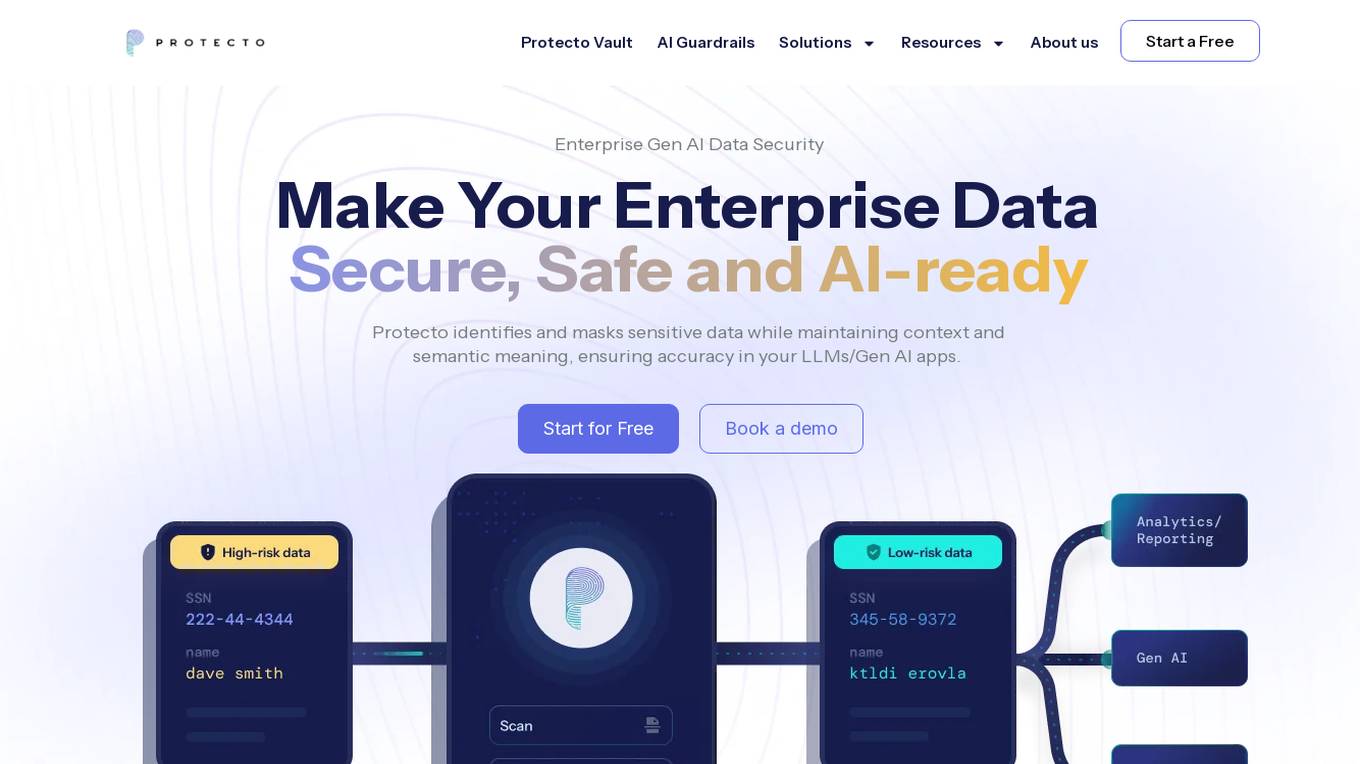
Protecto
Protecto is an Enterprise AI Data Security & Privacy Guardrails application that offers solutions for protecting sensitive data in AI applications. It helps organizations maintain data security and compliance with regulations like HIPAA, GDPR, and PCI. Protecto identifies and masks sensitive data while retaining context and semantic meaning, ensuring accuracy in AI applications. The application provides custom scans, unmasking controls, and versatile data protection across structured, semi-structured, and unstructured text. It is preferred by leading Gen AI companies for its robust and cost-effective data security solutions.

Undress App
Undress App is an AI tool that allows users to nudify any person in a photo using AI technology. The application provides a 3-step instruction on how to achieve this, emphasizing the importance of photo quality and proper positioning of the person in the image. It discusses the ethical implications of using AI to undress individuals and highlights the creative and potentially harmful uses of such technology. Undress App aims to offer a platform for creative self-expression and entertainment while acknowledging the potential misuse of the tool.
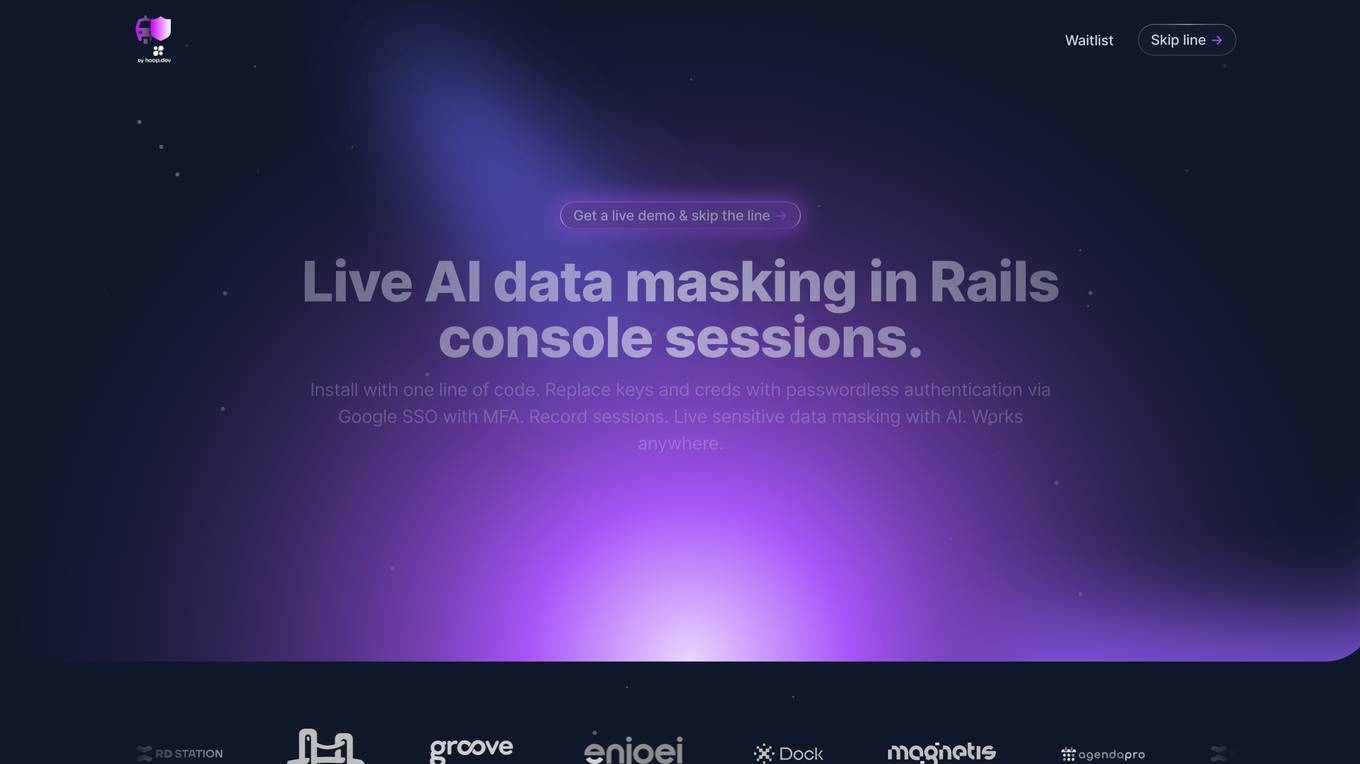
Hoop.dev
Hoop.dev is an AI application that provides live AI data masking in Rails console sessions. It offers shield Rails console access, automated employee onboarding & off-boarding, and AI data masking to protect customer data with a plug & play PII filter. The application enables compliant access without disrupting speed, automates HIPAA, SOC 1/2, PCI, GDPR, & other security controls, and reduces Rails Console use by finding repeated operations and turning Ruby scripts into repeatable no-code UIs.
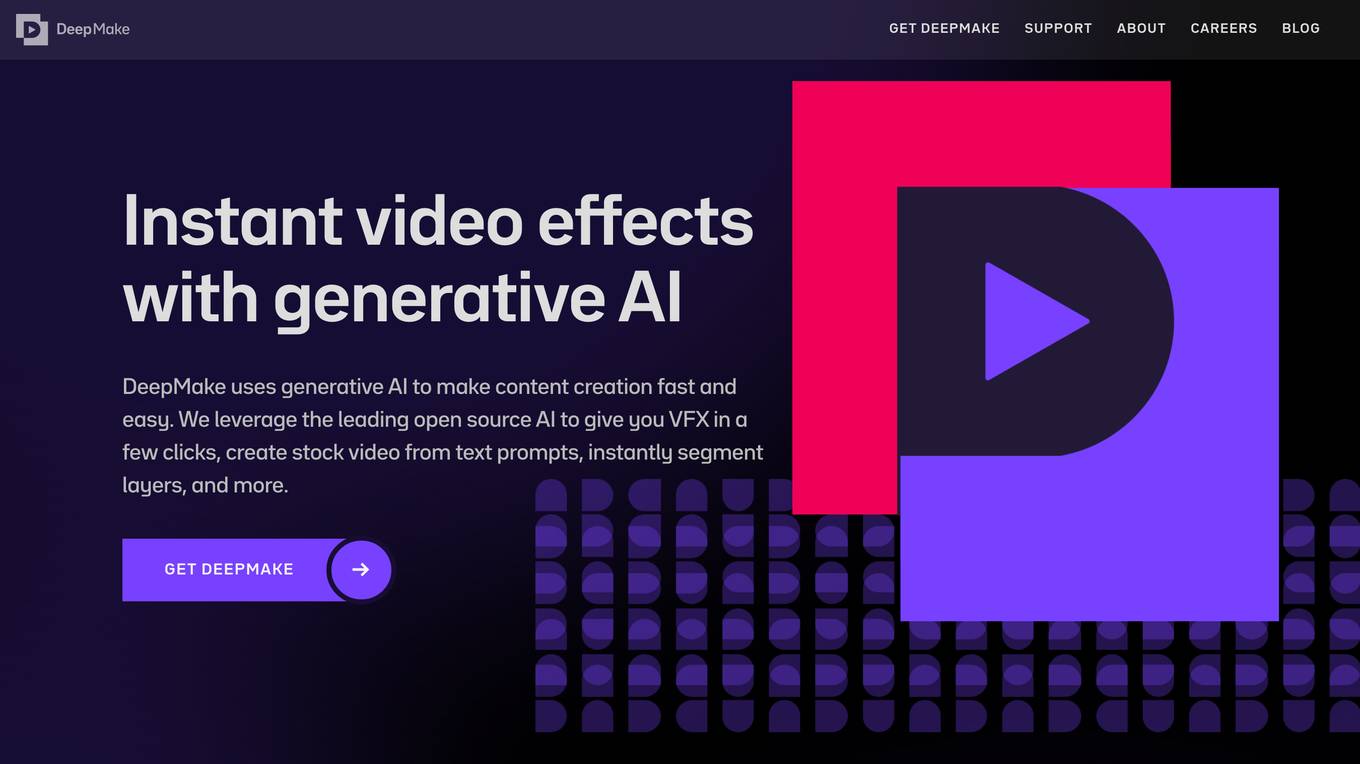
DeepMake
DeepMake is a powerful AI tool that empowers users to unleash their creativity by providing control over Open Source AI tools for enhancing visual content. With DeepMake, users can create, edit, and enhance images and videos without any usage limits or reliance on cloud services. The application runs locally on the user's computer, offering a higher level of control over AI-generated output and introducing new AI tools regularly to stay at the forefront of AI capabilities.
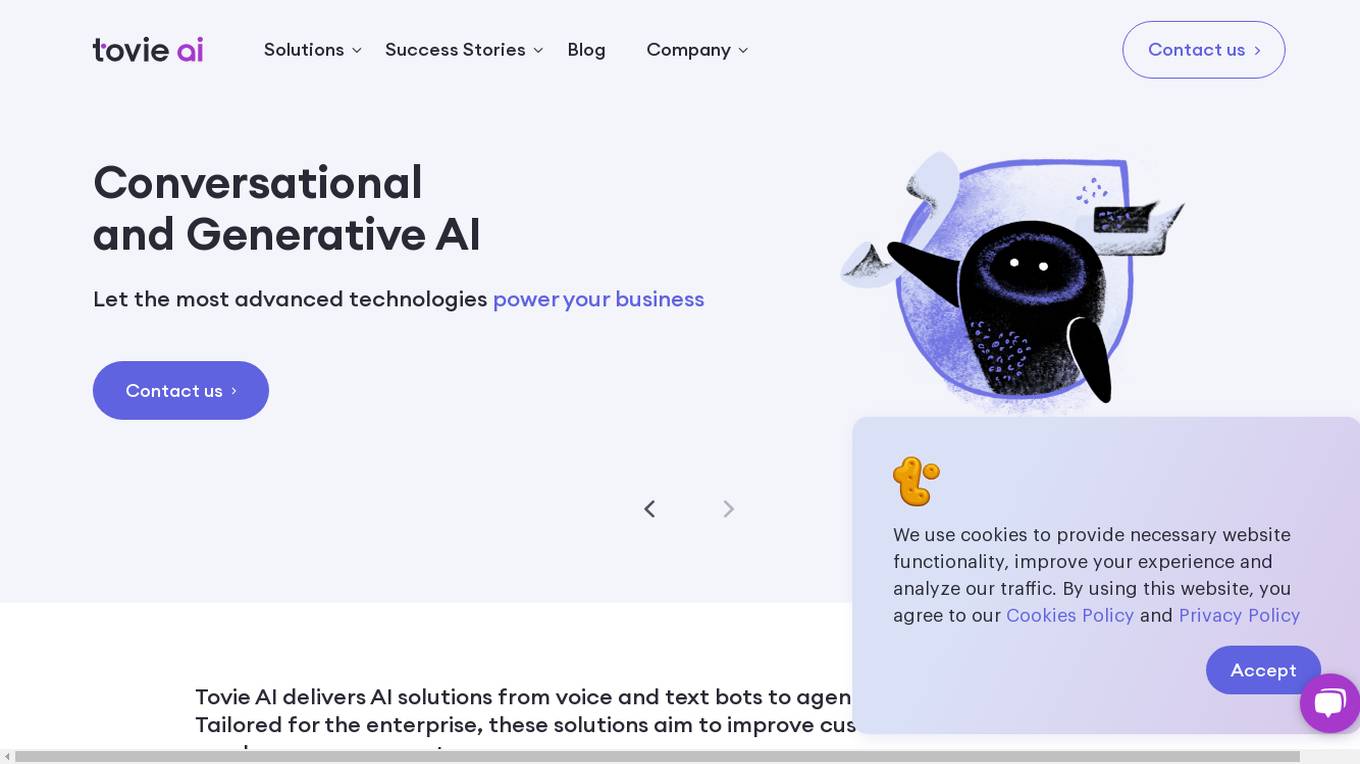
Tovie AI
Tovie AI is a platform offering Generative AI and on-prem LLM solutions for enterprise applications. It provides a range of AI tools such as GenAI Agents, Data Agent, Data Mask, AI Bots, Voice Bots, Chatbots, and Sector-specific Assistants. Tovie AI aims to enhance customer service, boost employee engagement, and improve business operations through its tailored AI solutions. The platform also offers consulting services to help businesses leverage Generative AI for business optimization and growth.
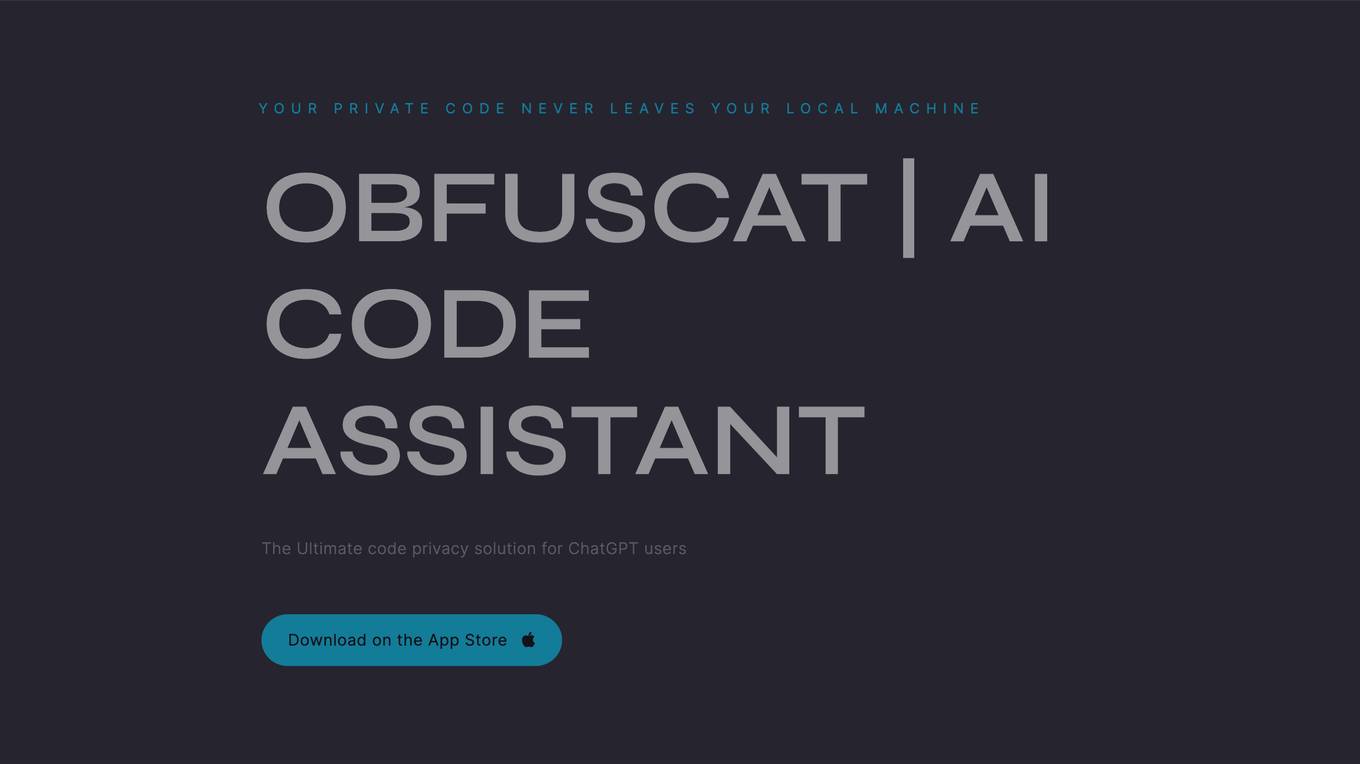
ObfusCat
ObfusCat is an AI Code Assistant that prioritizes the privacy and security of developers' code by ensuring it never leaves the local machine. It shields users from legal implications of sharing code with third parties and provides a layer of security and confidentiality. The application utilizes a proprietary algorithm to mask and unmask code before and after interacting with ChatGPT for code generation. ObfusCat is designed to streamline code writing, bug fixing, and code explanation processes while maintaining the privacy of the user's code.
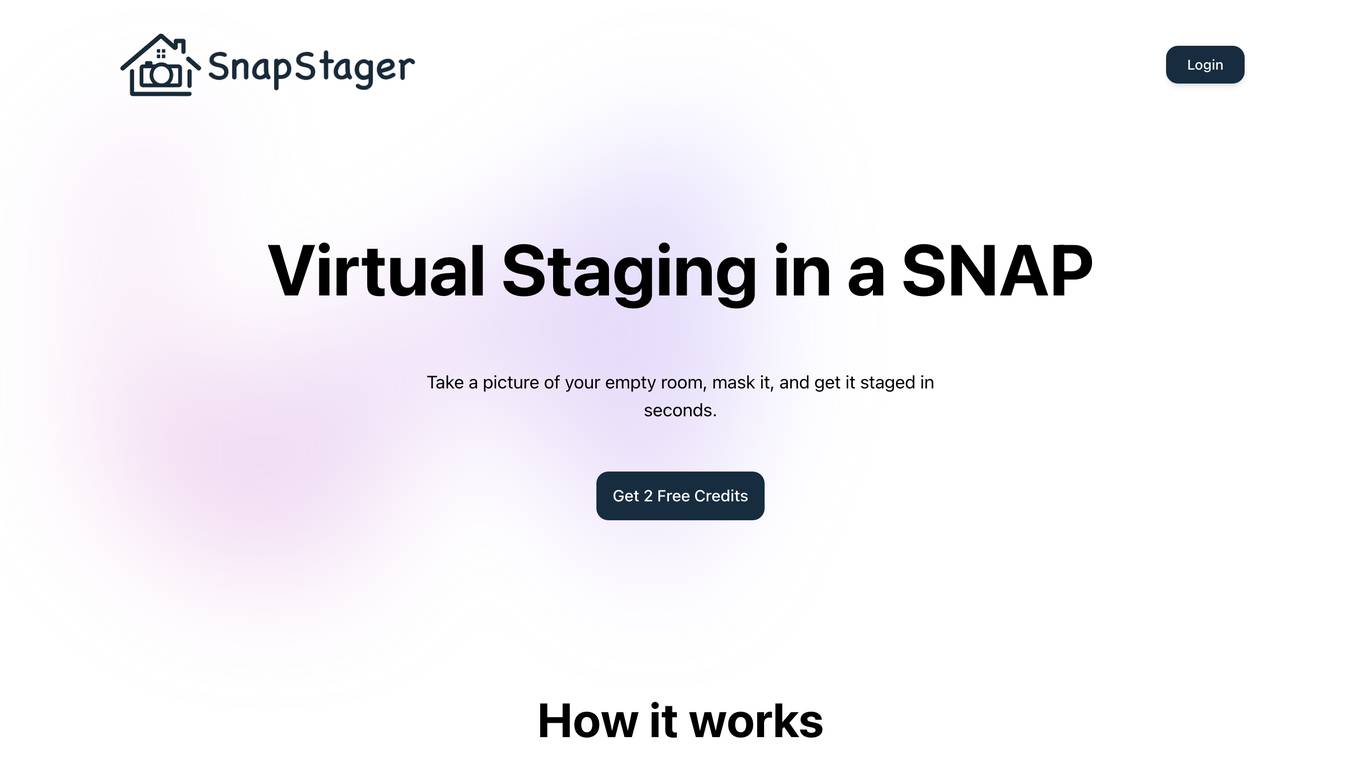
Virtual Staging
Virtual Staging is an AI-powered tool that allows you to virtually stage your empty rooms in seconds. Simply take a picture of your empty room, mask it, and get it staged in seconds. Virtual Staging is the only solution you need for virtual staging. It is realistic, lightning fast, and cheap. You can pay $1 instead of $25 for virtual staging.

Imagen
Imagen is a personalized AI photo editing assistant that offers solutions for editing, culling, and cloud storage. It provides professional photographers with an AI-powered post-production solution that learns their personal style, saves time, and offers consistent, accurate, and personalized editing in under 0.5 seconds per photo. Imagen also features a Personal AI Profile that evolves and learns from the user, additional AI tools like Crop, Straighten, Subject Mask, and Smooth Skin, and access to Talent AI Profiles by leading international photographers. The application aims to streamline the editing workflow, enhance efficiency, and provide a seamless cloud storage solution for photographers.
20 - Open Source AI Tools
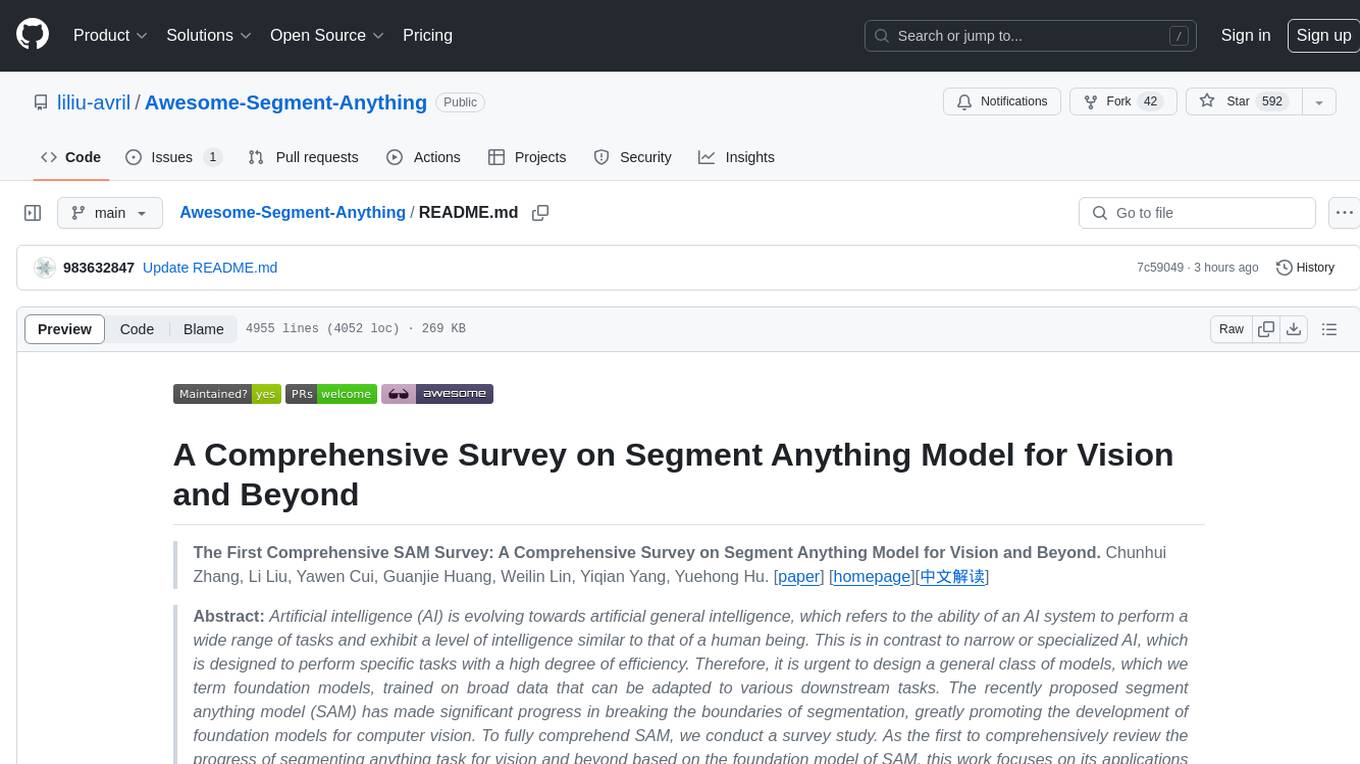
Awesome-Segment-Anything
Awesome-Segment-Anything is a powerful tool for segmenting and extracting information from various types of data. It provides a user-friendly interface to easily define segmentation rules and apply them to text, images, and other data formats. The tool supports both supervised and unsupervised segmentation methods, allowing users to customize the segmentation process based on their specific needs. With its versatile functionality and intuitive design, Awesome-Segment-Anything is ideal for data analysts, researchers, content creators, and anyone looking to efficiently extract valuable insights from complex datasets.
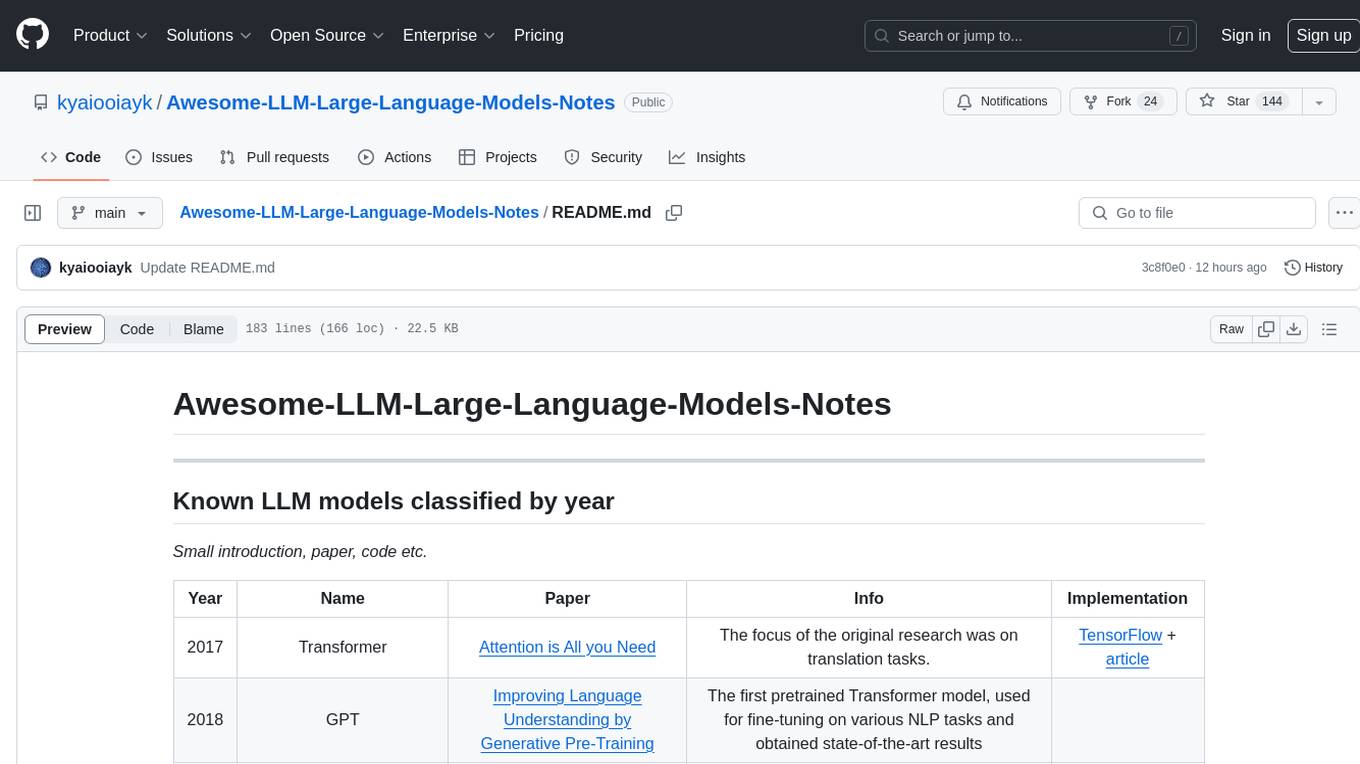
Awesome-LLM-Large-Language-Models-Notes
Awesome-LLM-Large-Language-Models-Notes is a repository that provides a comprehensive collection of information on various Large Language Models (LLMs) classified by year, size, and name. It includes details on known LLM models, their papers, implementations, and specific characteristics. The repository also covers LLM models classified by architecture, must-read papers, blog articles, tutorials, and implementations from scratch. It serves as a valuable resource for individuals interested in understanding and working with LLMs in the field of Natural Language Processing (NLP).
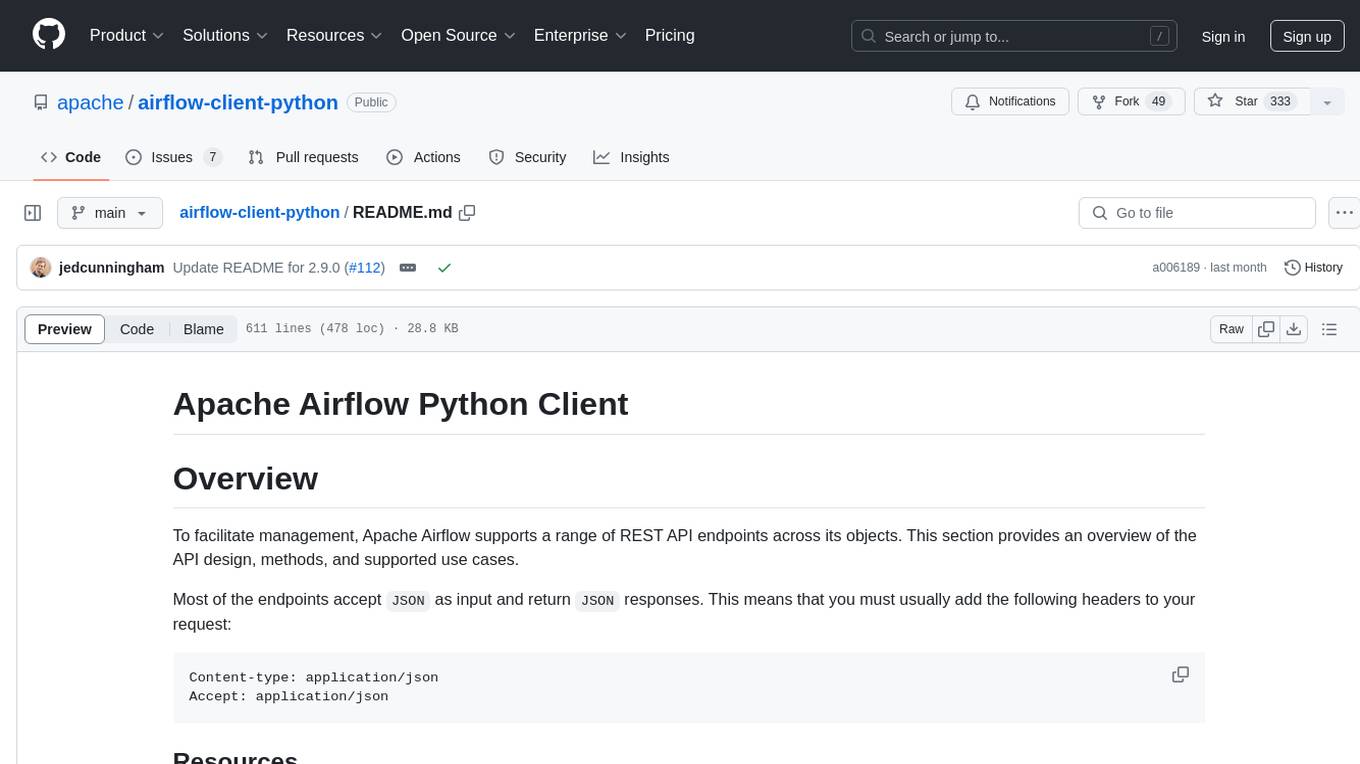
airflow-client-python
The Apache Airflow Python Client provides a range of REST API endpoints for managing Airflow metadata objects. It supports CRUD operations for resources, with endpoints accepting and returning JSON. Users can create, read, update, and delete resources. The API design follows conventions with consistent naming and field formats. Update mask is available for patch endpoints to specify fields for update. API versioning is not synchronized with Airflow releases, and changes go through a deprecation phase. The tool supports various authentication methods and error responses follow RFC 7807 format.
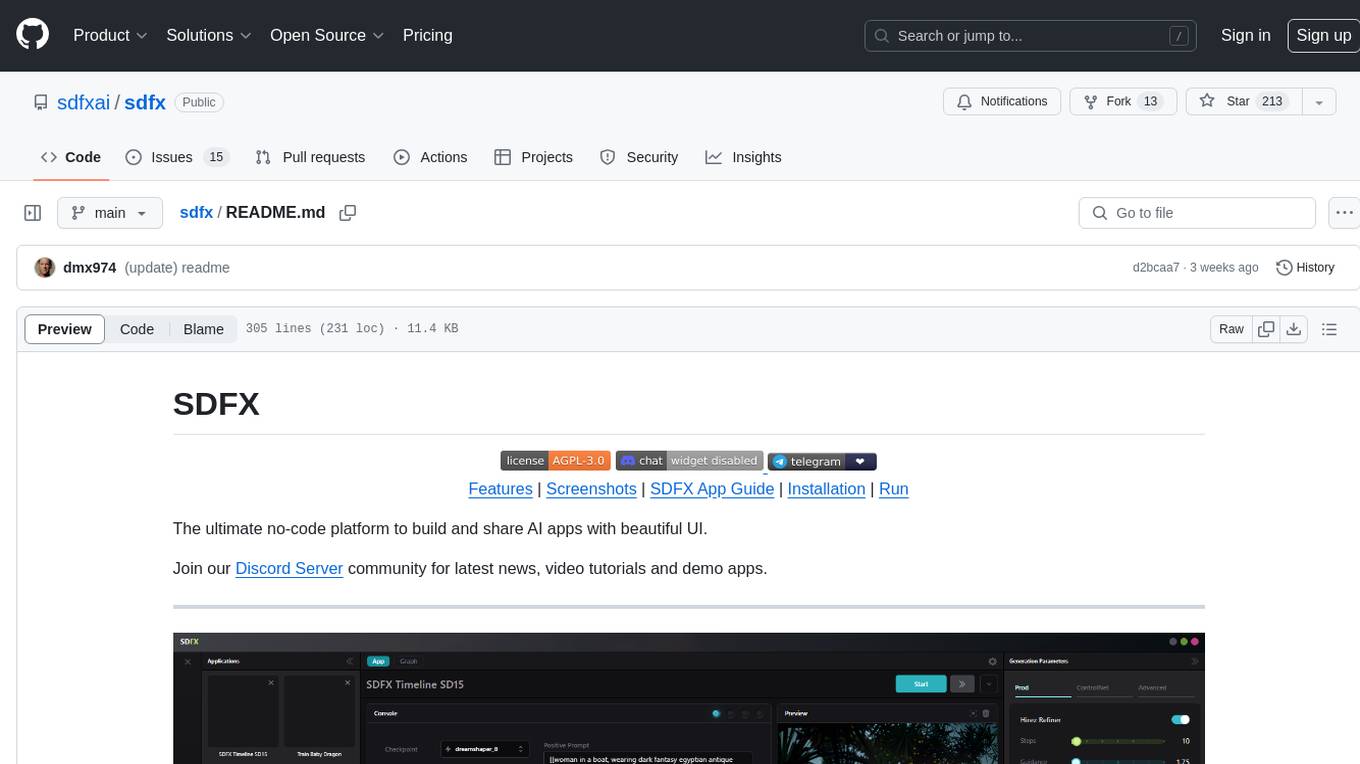
sdfx
SDFX is the ultimate no-code platform for building and sharing AI apps with beautiful UI. It enables the creation of user-friendly interfaces for complex workflows by combining Comfy workflow with a UI. The tool is designed to merge the benefits of form-based UI and graph-node based UI, allowing users to create intricate graphs with a high-level UI overlay. SDFX is fully compatible with ComfyUI, abstracting the need for installing ComfyUI. It offers features like animated graph navigation, node bookmarks, UI debugger, custom nodes manager, app and template export, image and mask editor, and more. The tool compiles as a native app or web app, making it easy to maintain and add new features.
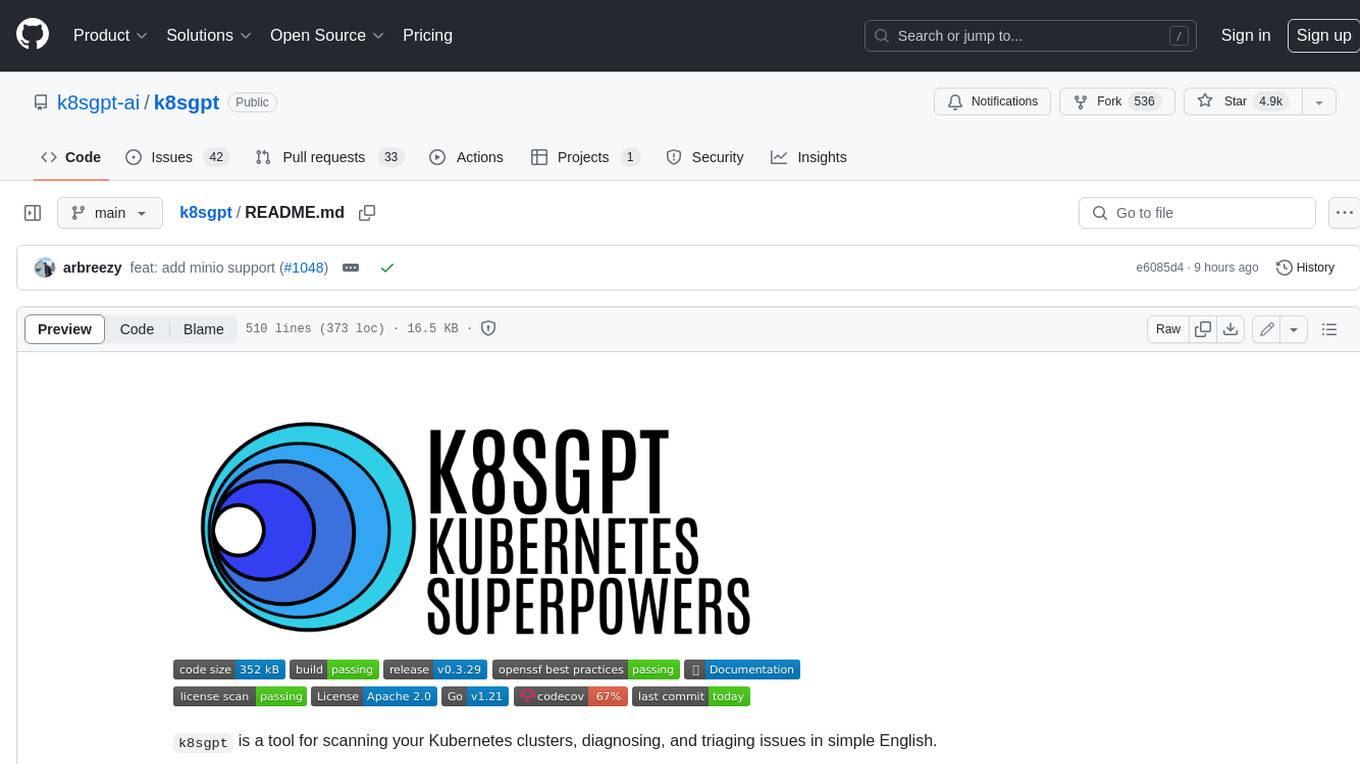
k8sgpt
K8sGPT is a tool for scanning your Kubernetes clusters, diagnosing, and triaging issues in simple English. It has SRE experience codified into its analyzers and helps to pull out the most relevant information to enrich it with AI.
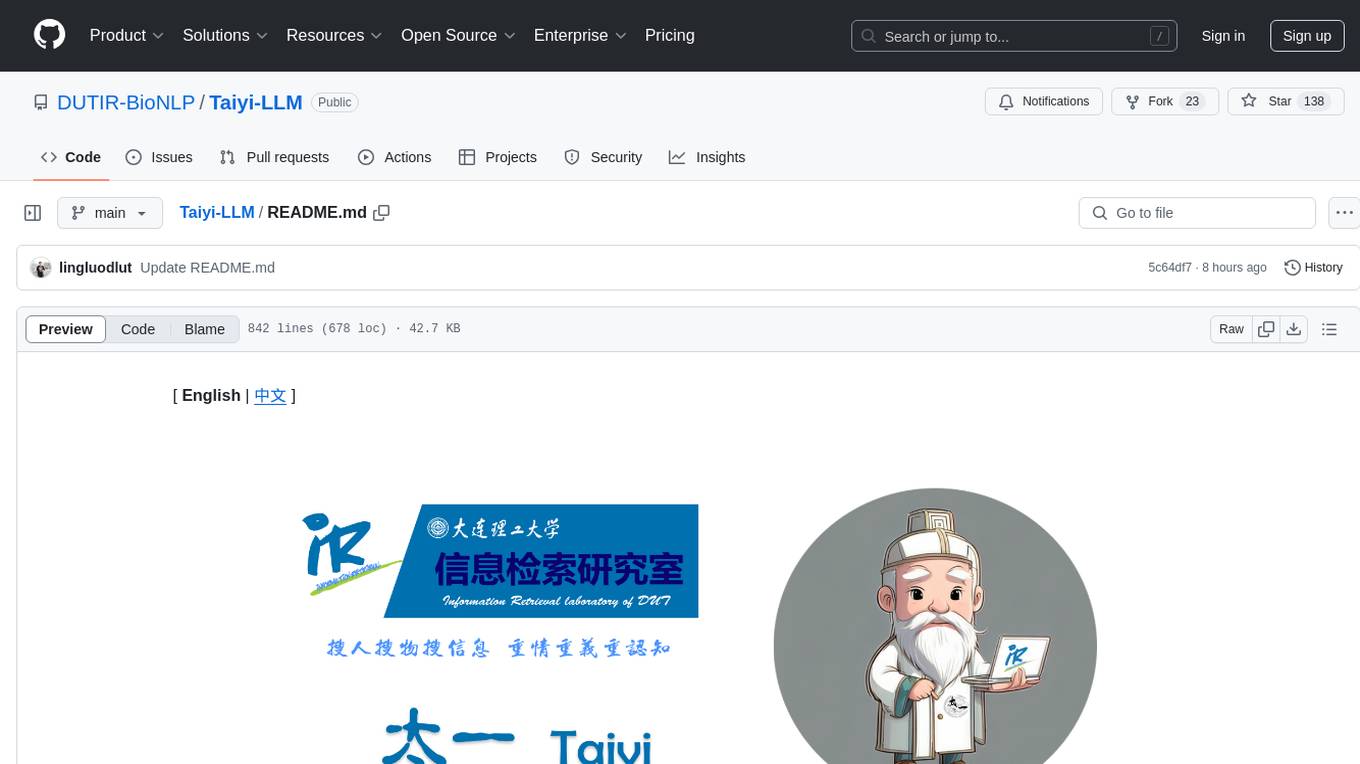
Taiyi-LLM
Taiyi (太一) is a bilingual large language model fine-tuned for diverse biomedical tasks. It aims to facilitate communication between healthcare professionals and patients, provide medical information, and assist in diagnosis, biomedical knowledge discovery, drug development, and personalized healthcare solutions. The model is based on the Qwen-7B-base model and has been fine-tuned using rich bilingual instruction data. It covers tasks such as question answering, biomedical dialogue, medical report generation, biomedical information extraction, machine translation, title generation, text classification, and text semantic similarity. The project also provides standardized data formats, model training details, model inference guidelines, and overall performance metrics across various BioNLP tasks.
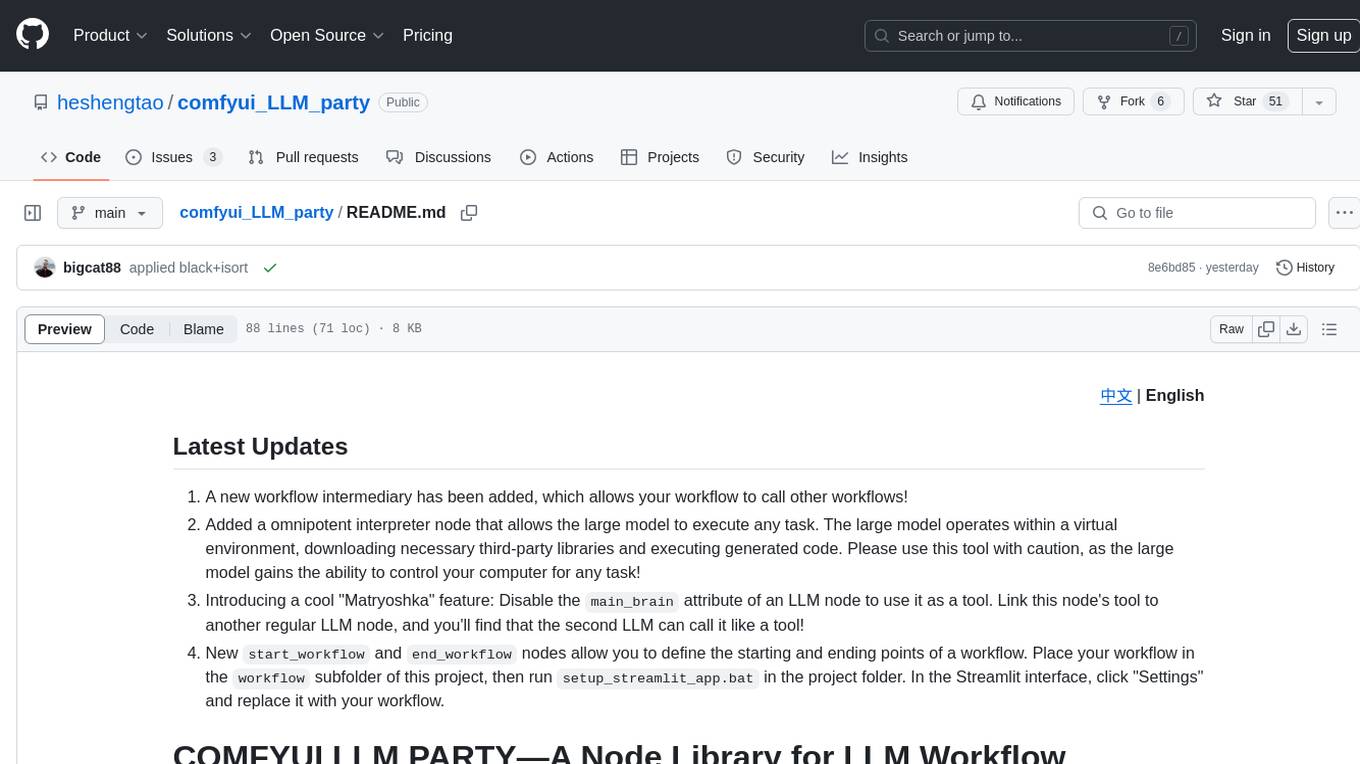
comfyui_LLM_party
COMFYUI LLM PARTY is a node library designed for LLM workflow development in ComfyUI, an extremely minimalist UI interface primarily used for AI drawing and SD model-based workflows. The project aims to provide a complete set of nodes for constructing LLM workflows, enabling users to easily integrate them into existing SD workflows. It features various functionalities such as API integration, local large model integration, RAG support, code interpreters, online queries, conditional statements, looping links for large models, persona mask attachment, and tool invocations for weather lookup, time lookup, knowledge base, code execution, web search, and single-page search. Users can rapidly develop web applications using API + Streamlit and utilize LLM as a tool node. Additionally, the project includes an omnipotent interpreter node that allows the large model to perform any task, with recommendations to use the 'show_text' node for display output.
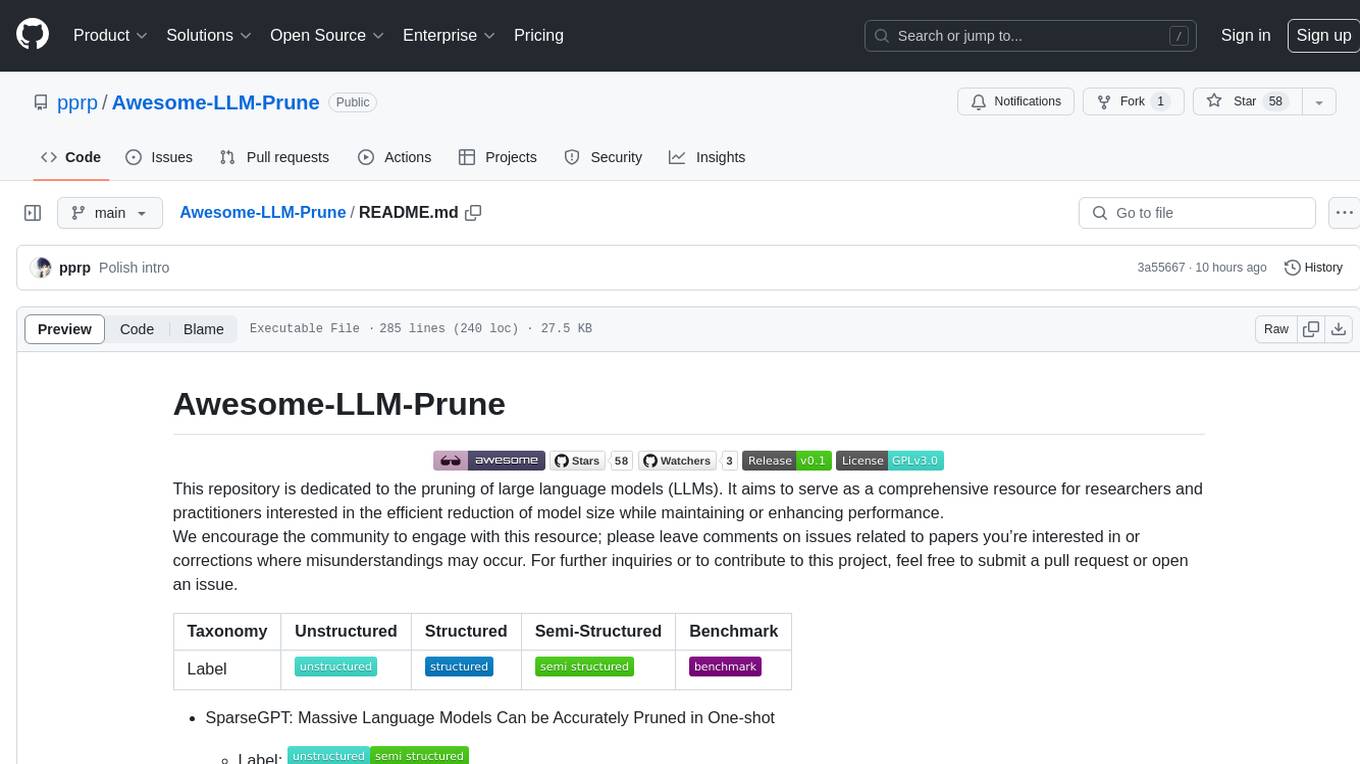
Awesome-LLM-Prune
This repository is dedicated to the pruning of large language models (LLMs). It aims to serve as a comprehensive resource for researchers and practitioners interested in the efficient reduction of model size while maintaining or enhancing performance. The repository contains various papers, summaries, and links related to different pruning approaches for LLMs, along with author information and publication details. It covers a wide range of topics such as structured pruning, unstructured pruning, semi-structured pruning, and benchmarking methods. Researchers and practitioners can explore different pruning techniques, understand their implications, and access relevant resources for further study and implementation.
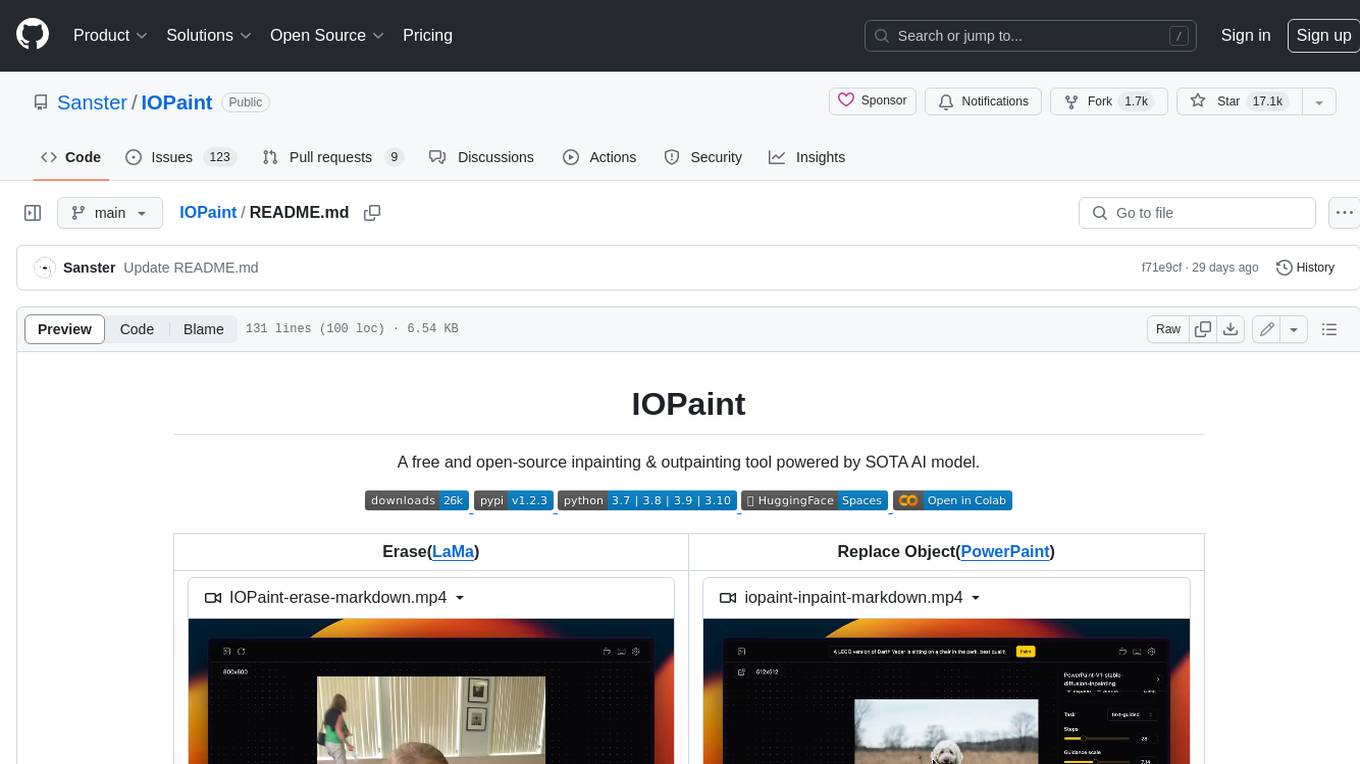
IOPaint
IOPaint is a free and open-source inpainting & outpainting tool powered by SOTA AI model. It supports various AI models to perform erase, inpainting, or outpainting tasks. Users can remove unwanted objects, defects, watermarks, or people from images using erase models. Additionally, diffusion models can replace objects or perform outpainting. The tool also offers plugins for interactive object segmentation, background removal, anime segmentation, super resolution, face restoration, and file management. IOPaint provides a web UI for easy access to the latest AI models and supports batch processing of images through the command line. Developers can contribute to the project by installing front-end dependencies, setting up the backend, and starting the development environment for both front-end and back-end components.
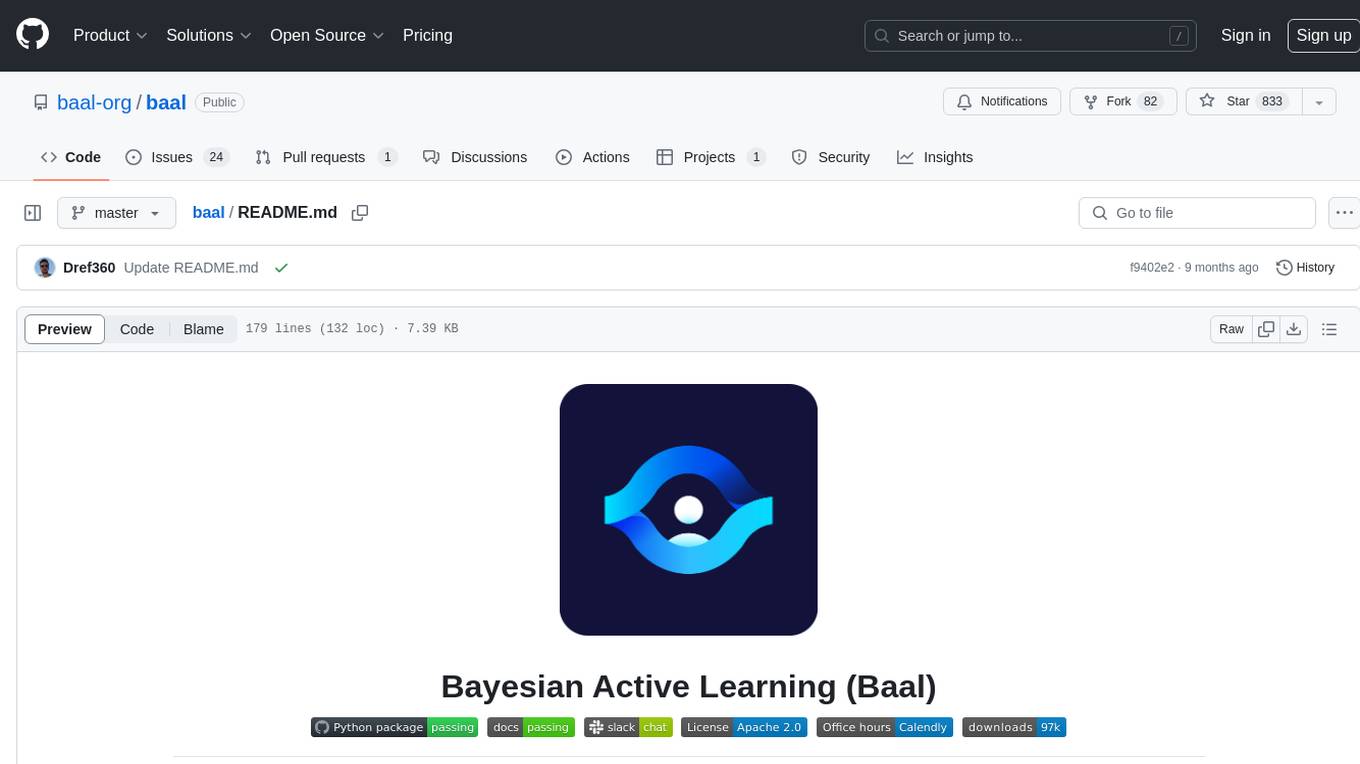
baal
Baal is an active learning library that supports both industrial applications and research use cases. It provides a framework for Bayesian active learning methods such as Monte-Carlo Dropout, MCDropConnect, Deep ensembles, and Semi-supervised learning. Baal helps in labeling the most uncertain items in the dataset pool to improve model performance and reduce annotation effort. The library is actively maintained by a dedicated team and has been used in various research papers for production and experimentation.
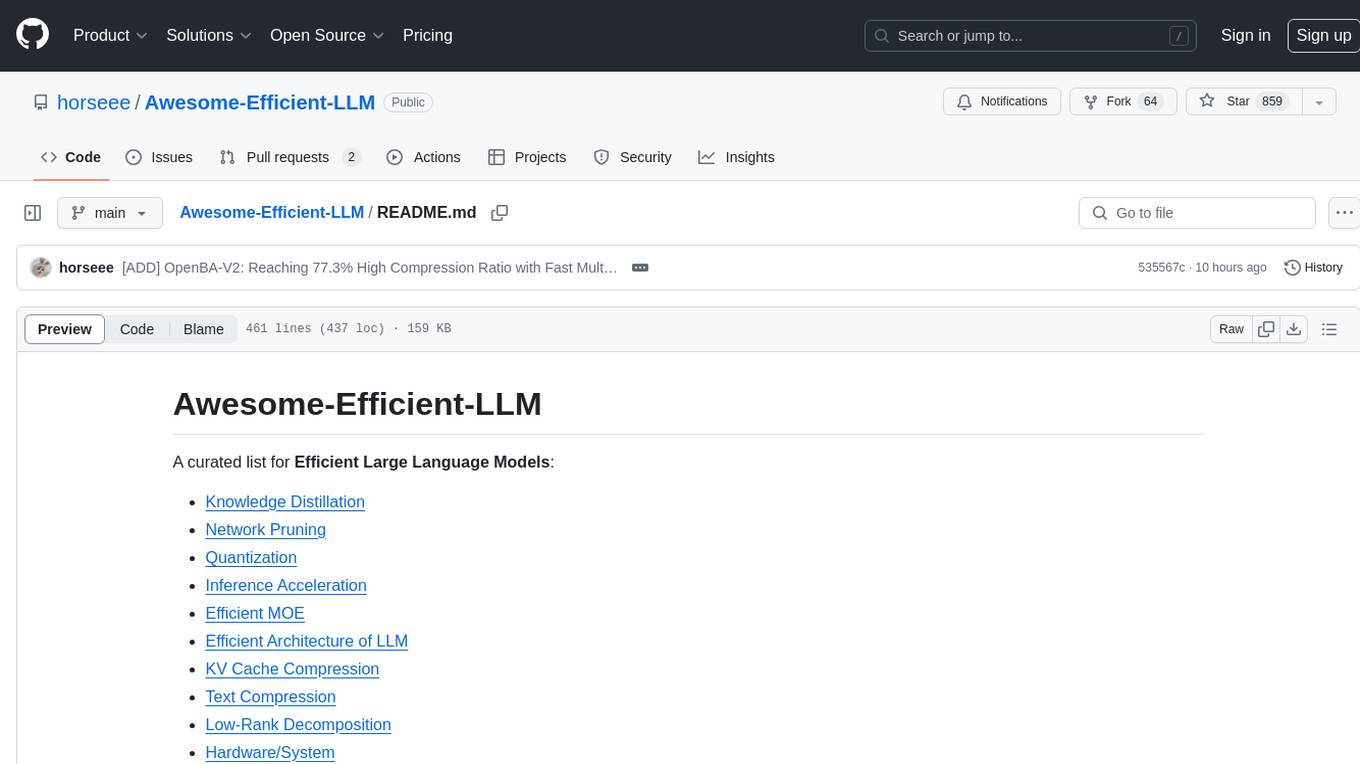
Awesome-Efficient-LLM
Awesome-Efficient-LLM is a curated list focusing on efficient large language models. It includes topics such as knowledge distillation, network pruning, quantization, inference acceleration, efficient MOE, efficient architecture of LLM, KV cache compression, text compression, low-rank decomposition, hardware/system, tuning, and survey. The repository provides a collection of papers and projects related to improving the efficiency of large language models through various techniques like sparsity, quantization, and compression.
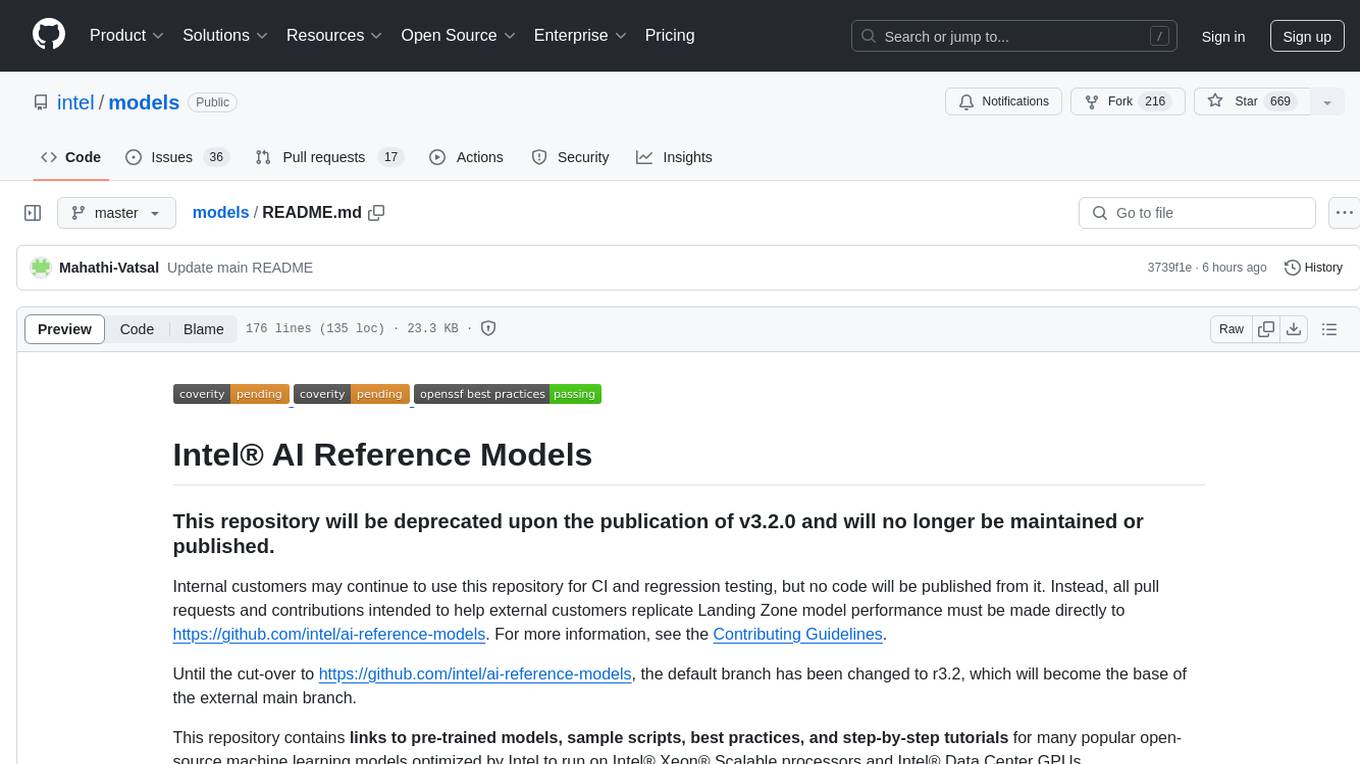
models
The Intel® AI Reference Models repository contains links to pre-trained models, sample scripts, best practices, and tutorials for popular open-source machine learning models optimized by Intel to run on Intel® Xeon® Scalable processors and Intel® Data Center GPUs. It aims to replicate the best-known performance of target model/dataset combinations in optimally-configured hardware environments. The repository will be deprecated upon the publication of v3.2.0 and will no longer be maintained or published.
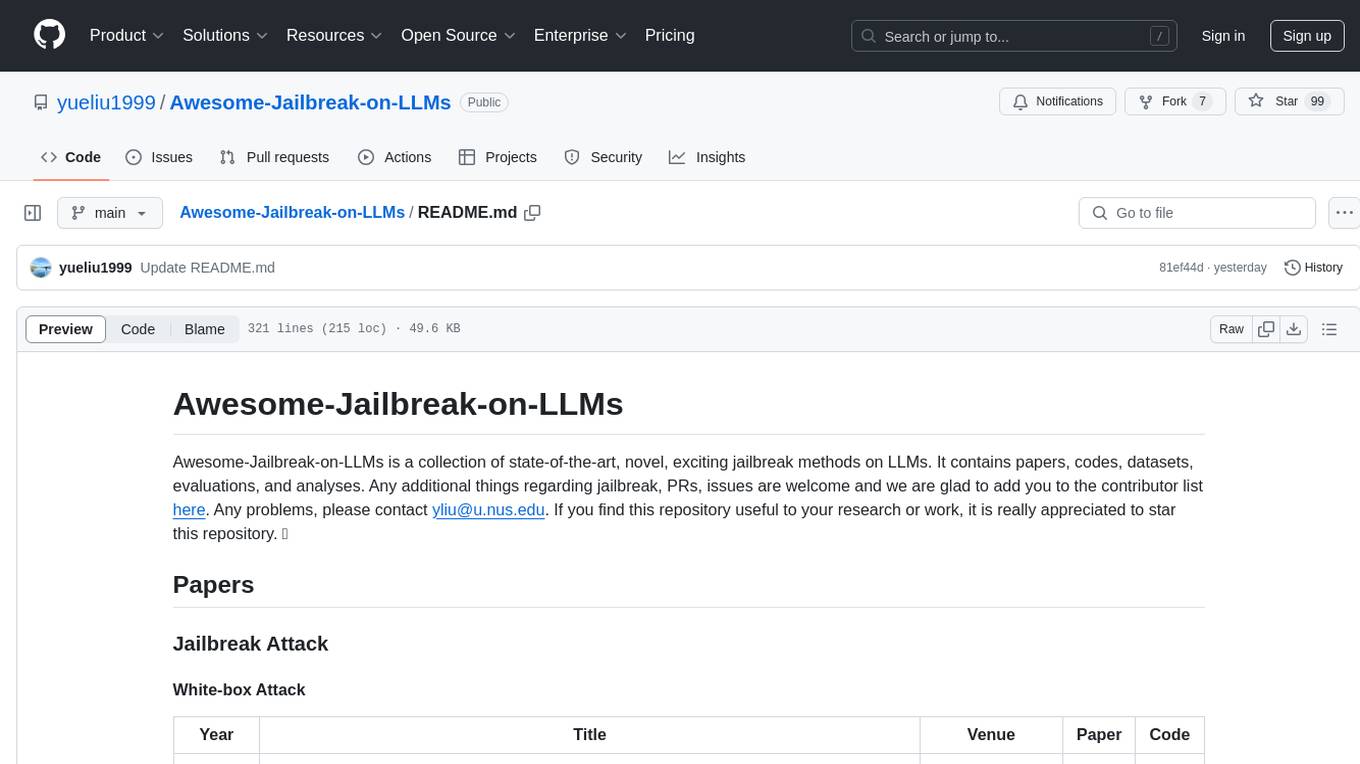
Awesome-Jailbreak-on-LLMs
Awesome-Jailbreak-on-LLMs is a collection of state-of-the-art, novel, and exciting jailbreak methods on Large Language Models (LLMs). The repository contains papers, codes, datasets, evaluations, and analyses related to jailbreak attacks on LLMs. It serves as a comprehensive resource for researchers and practitioners interested in exploring various jailbreak techniques and defenses in the context of LLMs. Contributions such as additional jailbreak-related content, pull requests, and issue reports are welcome, and contributors are acknowledged. For any inquiries or issues, contact [email protected]. If you find this repository useful for your research or work, consider starring it to show appreciation.
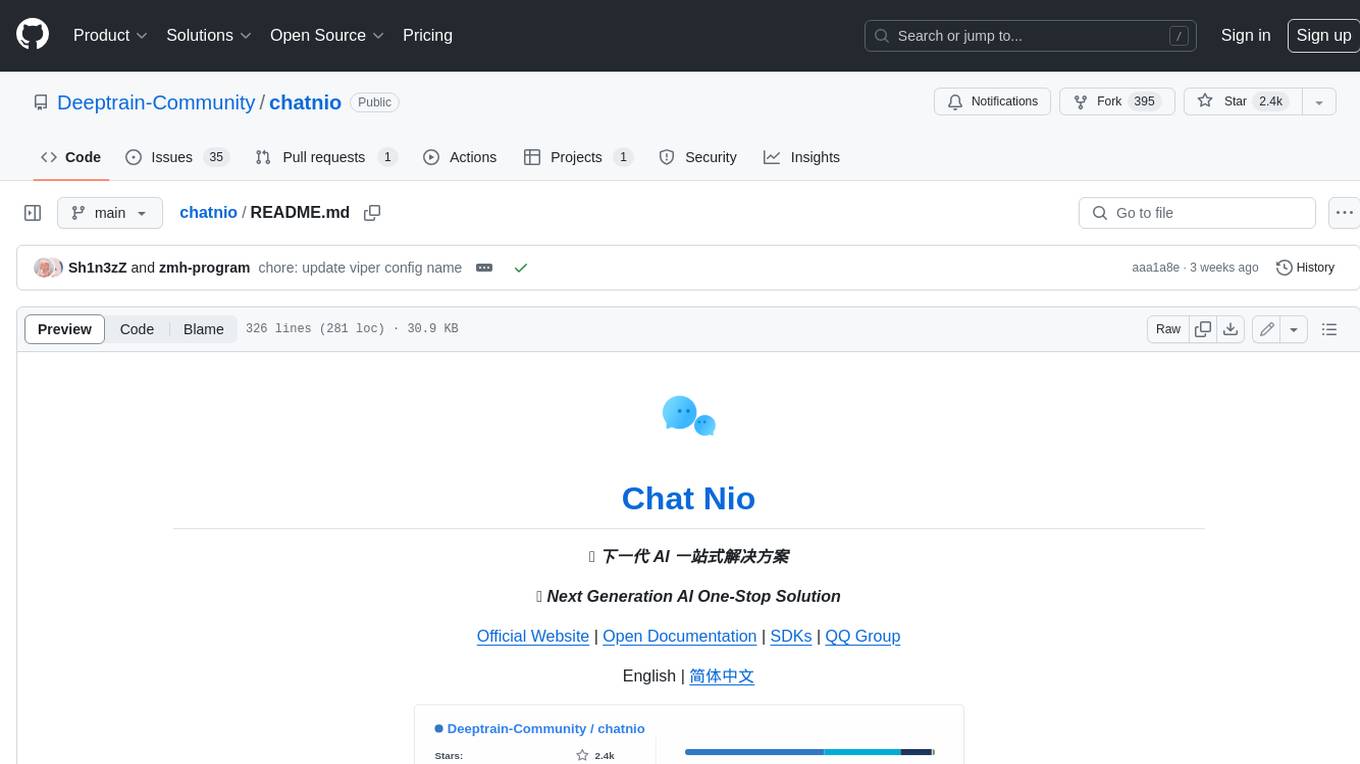
chatnio
Chat Nio is a next-generation AI one-stop solution that provides a rich and user-friendly interface for interacting with various AI models. It offers features such as AI chat conversation, rich format compatibility, markdown support, message menu support, multi-platform adaptation, dialogue memory, full-model file parsing, full-model DuckDuckGo online search, full-screen large text editing, model marketplace, preset support, site announcements, preference settings, internationalization support, and a rich admin system. Chat Nio also boasts a powerful channel management system that utilizes a self-developed channel distribution algorithm, supports multi-channel management, is compatible with multiple formats, allows for custom models, supports channel retries, enables balanced load within the same channel, and provides channel model mapping and user grouping. Additionally, Chat Nio offers forwarding API services that are compatible with multiple formats in the OpenAI universal format and support multiple model compatible layers. It also provides a custom build and install option for highly customizable deployments. Chat Nio is an open-source project licensed under the Apache License 2.0 and welcomes contributions from the community.
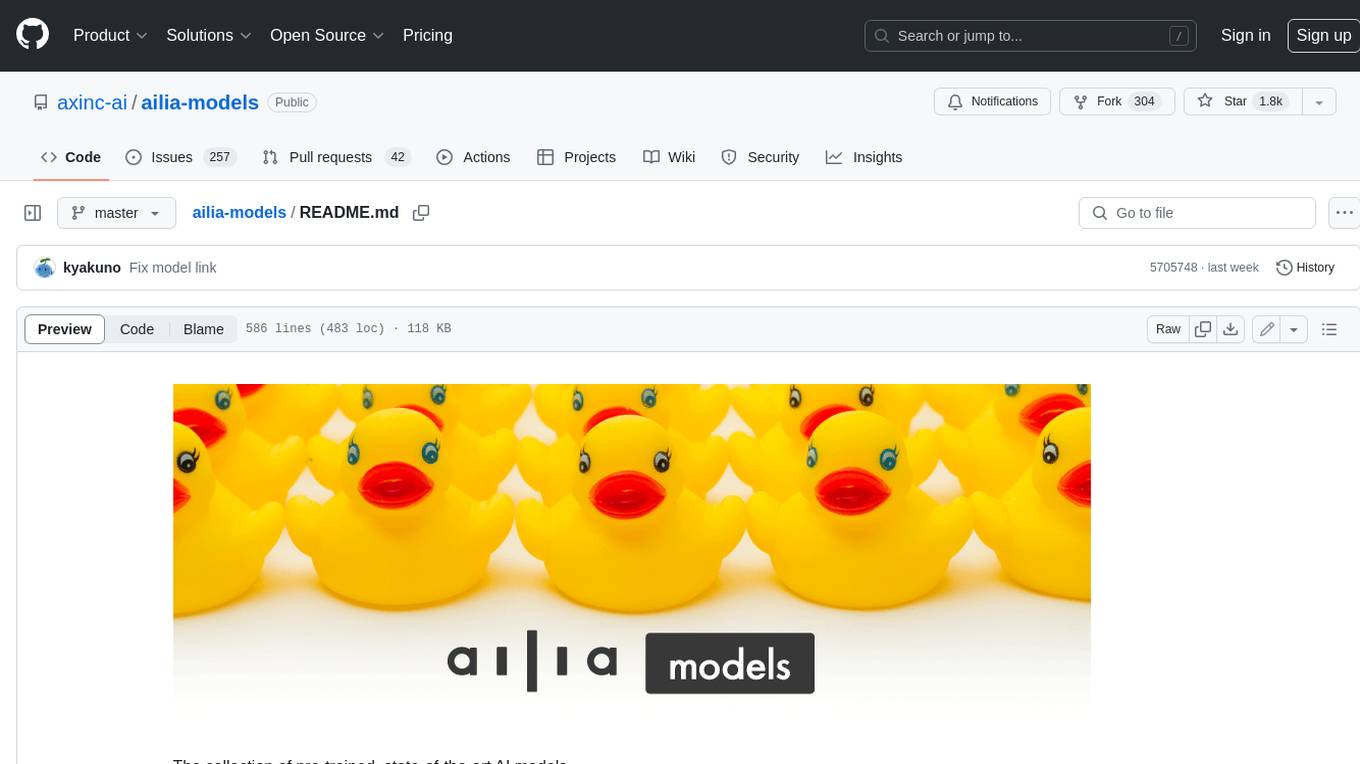
ailia-models
The collection of pre-trained, state-of-the-art AI models. ailia SDK is a self-contained, cross-platform, high-speed inference SDK for AI. The ailia SDK provides a consistent C++ API across Windows, Mac, Linux, iOS, Android, Jetson, and Raspberry Pi platforms. It also supports Unity (C#), Python, Rust, Flutter(Dart) and JNI for efficient AI implementation. The ailia SDK makes extensive use of the GPU through Vulkan and Metal to enable accelerated computing. # Supported models 323 models as of April 8th, 2024
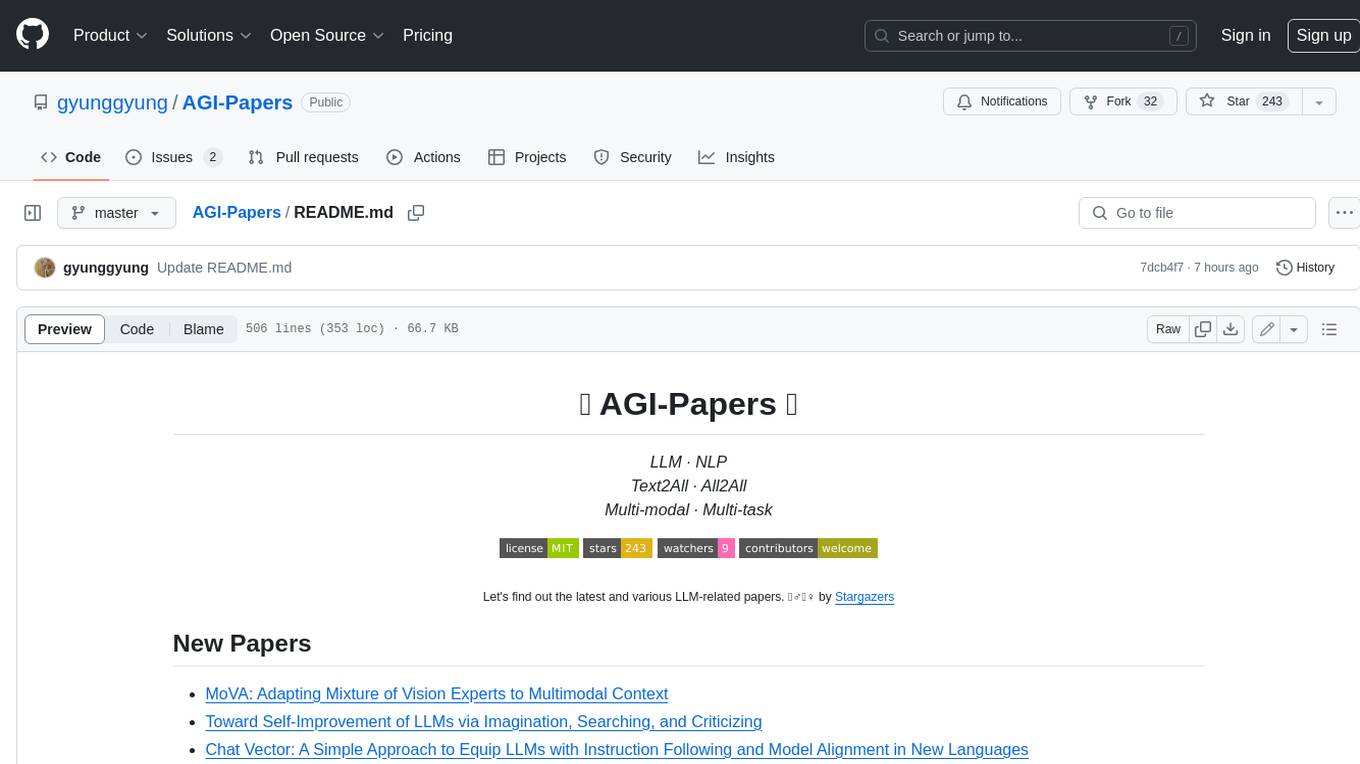
AGI-Papers
This repository contains a collection of papers and resources related to Large Language Models (LLMs), including their applications in various domains such as text generation, translation, question answering, and dialogue systems. The repository also includes discussions on the ethical and societal implications of LLMs. **Description** This repository is a collection of papers and resources related to Large Language Models (LLMs). LLMs are a type of artificial intelligence (AI) that can understand and generate human-like text. They have a wide range of applications, including text generation, translation, question answering, and dialogue systems. **For Jobs** - **Content Writer** - **Copywriter** - **Editor** - **Journalist** - **Marketer** **AI Keywords** - **Large Language Models** - **Natural Language Processing** - **Machine Learning** - **Artificial Intelligence** - **Deep Learning** **For Tasks** - **Generate text** - **Translate text** - **Answer questions** - **Engage in dialogue** - **Summarize text**
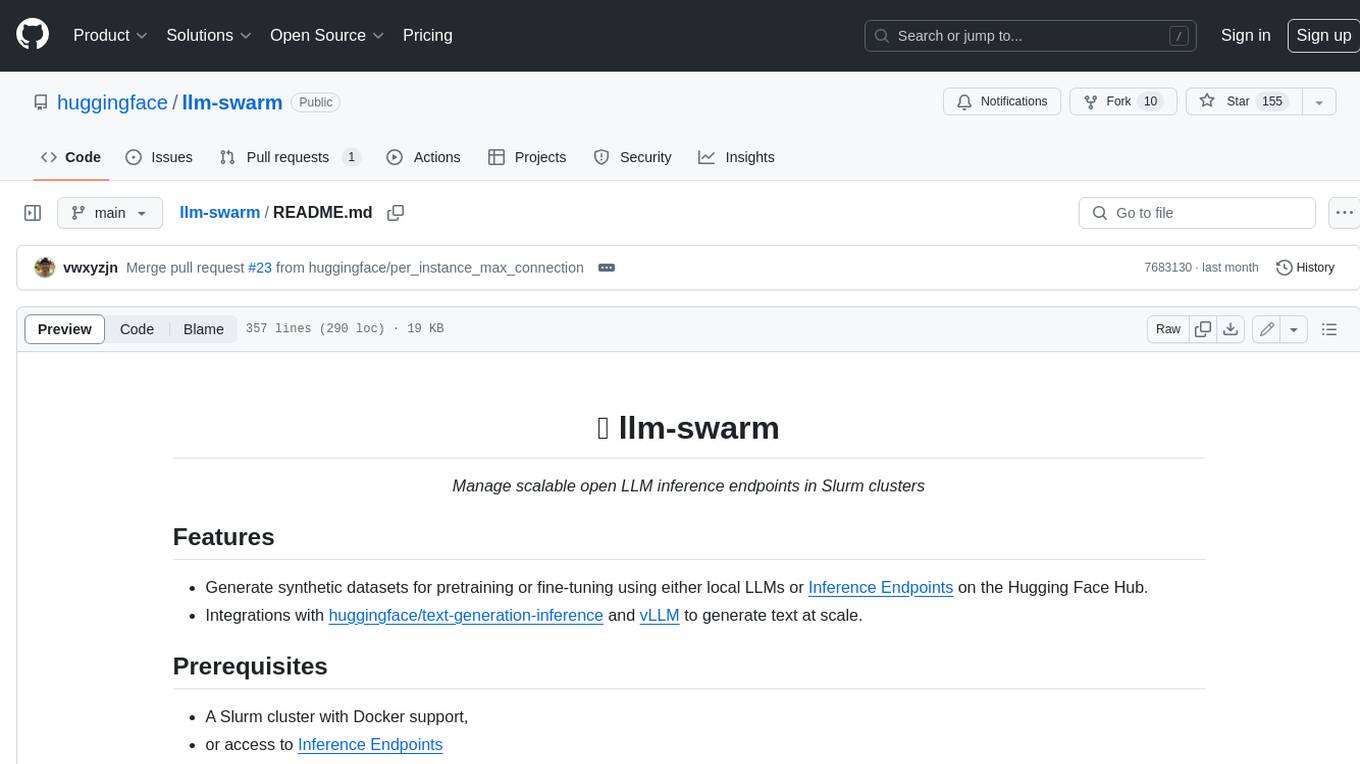
llm-swarm
llm-swarm is a tool designed to manage scalable open LLM inference endpoints in Slurm clusters. It allows users to generate synthetic datasets for pretraining or fine-tuning using local LLMs or Inference Endpoints on the Hugging Face Hub. The tool integrates with huggingface/text-generation-inference and vLLM to generate text at scale. It manages inference endpoint lifetime by automatically spinning up instances via `sbatch`, checking if they are created or connected, performing the generation job, and auto-terminating the inference endpoints to prevent idling. Additionally, it provides load balancing between multiple endpoints using a simple nginx docker for scalability. Users can create slurm files based on default configurations and inspect logs for further analysis. For users without a Slurm cluster, hosted inference endpoints are available for testing with usage limits based on registration status.
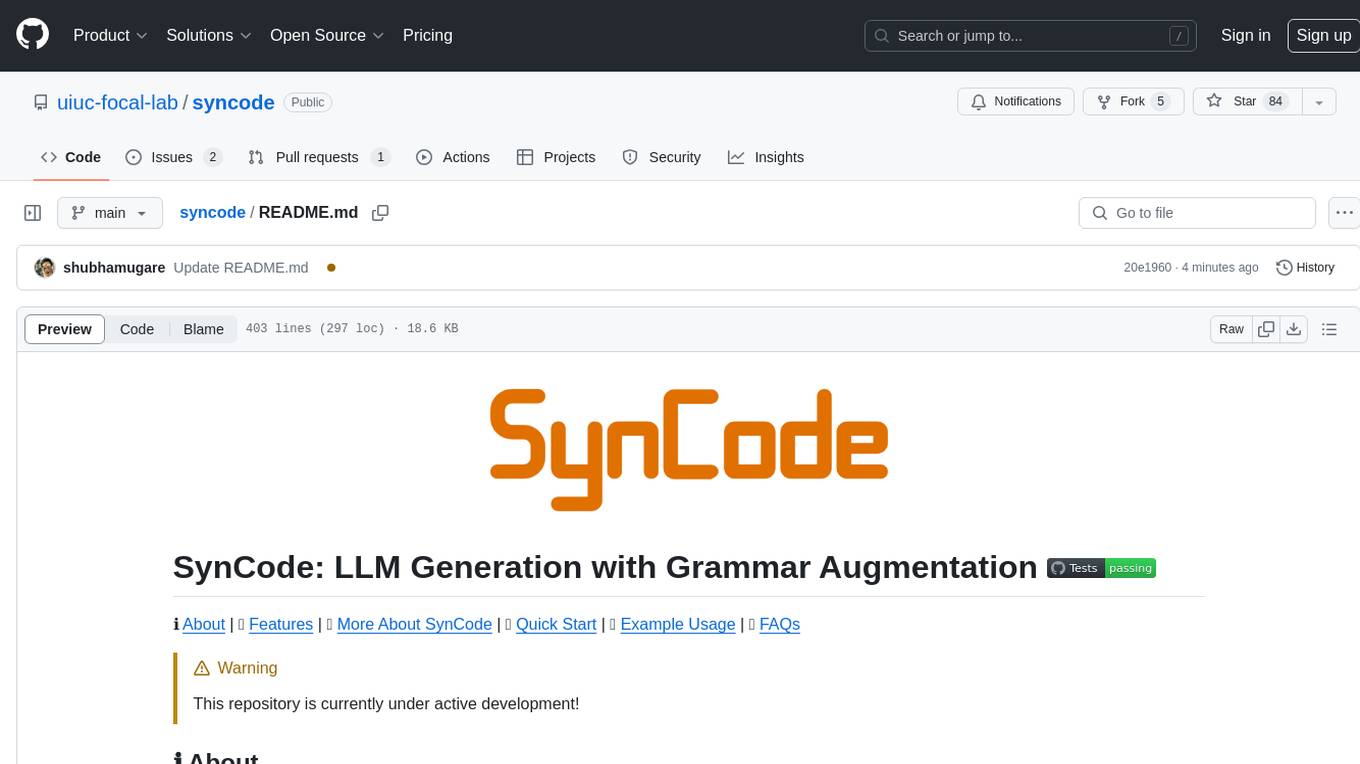
syncode
SynCode is a novel framework for the grammar-guided generation of Large Language Models (LLMs) that ensures syntactically valid output with respect to defined Context-Free Grammar (CFG) rules. It supports general-purpose programming languages like Python, Go, SQL, JSON, and more, allowing users to define custom grammars using EBNF syntax. The tool compares favorably to other constrained decoders and offers features like fast grammar-guided generation, compatibility with HuggingFace Language Models, and the ability to work with various decoding strategies.
